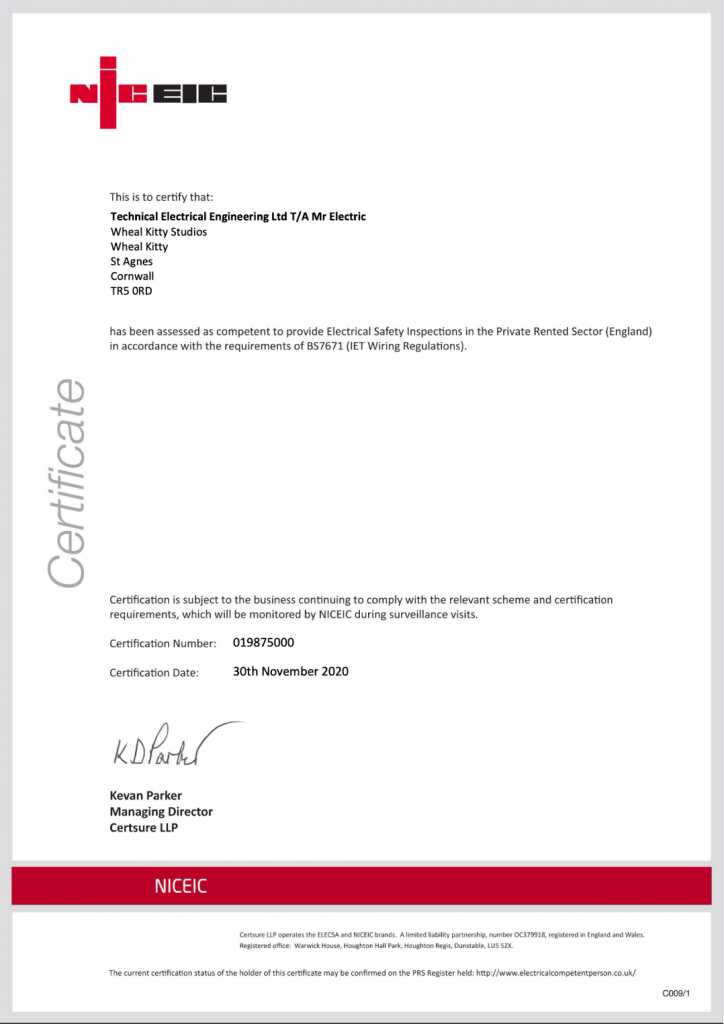NEW REGULATIONS FOR FIRE SAFETY IN HOLIDAY HOMES.
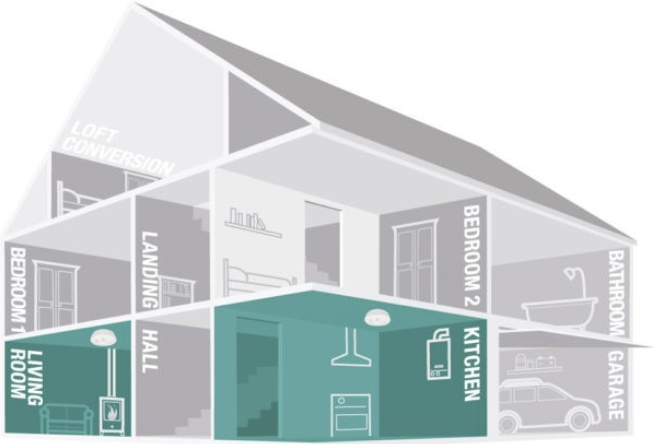
MANDATORY FIRE RISK ASSESSMENT:
Below is some detail on what services we can offer to help you complete your Mandatory Fire Risk Assessment.
Full length, written assessments, covering all aspects of fire risk, become a legal requirement for all properties from the 1st of October 2023.
Additionally, the government has issued new guidance that applies to properties of ‘small’ paying guest accommodation.
Please click on the link to view: NEW GUIDANCE
This is defined as:
‘A single premises of ground floor, or ground and first floor, providing sleeping accommodation for a maximum of 10 persons, with no more than four bedrooms on the first floor…’
OR
‘Individual flats (whether within a purpose-built block of flats or a house that has been converted into flats), other than unusually large flats.
ELECTRICAL SAFETY IN A HOLIDAY LETTING PROPERTY:
As an owner, you are required by law to adhere to the necessary electrical safety regulations as set out in current standards as governed by the Electricity at Work Regulations (1989).
The legislation states that all electrical systems in a property must be maintained to avoid danger to all who use the premises.
Electrical safety in any home is essential, and if you are a holiday let owner you have a duty of care to ensure that all electrical appliances, circuits, and fixed installations within your property are safe and compliant with current regulations.
As well as peace of mind for you (and your family) and your guests, if you are confident your property complies with electrical safety regulations, you’re also preventing potential injury to guests and your own liability.
As a responsible holiday let owner, you can’t afford to be complacent where electrical safety is concerned.
ELECTRICAL INSTALLATION CONDITION REPORTS (EICR) FOR HOLIDAY LETS:
The requirement for all holiday homes is they must have a valid EICR (Electrical Installation Condition Report) in place under the fire risk assessment document requirement.
An Electrical Installation Condition Report [EICR] is the best documented way to ensure your properties electrical installation is safe and satisfactory.
WHAT IS AN ELECTRICAL INSTALLATION CONDITION REPORT?
An EICR is a documented account produced by a qualified and competent electrical engineer, as part of a detailed inspection of the quality of the ‘fixed’ and permanently connected electrical installations in a property.
This will include wiring, plug sockets, light fittings, consumer units and supplies to fixed appliances such as showers, cookers, extractors etc. A bit like an MOT for your home electrics.
The EICR will identify if there are any hazardous faults, defects, or electrical safety issues in a home.
During the inspection, your chosen electrical engineer will check the condition of your electrical installations against the BS 7671 IET Wiring Regulations (the UK standard for the safety of electrical installations).
FOLLOWING AN ELECTRICAL INSTALLATION CONDITION REPORT?
Following the inspection, your chosen electrical engineer will issue an EICR certificate and a report on any electrical works in a priority order that are needed to maintain guest safety and prevent property damage.
You can then rest in the knowledge that you have an EICR official certificate from a qualified professional, which you can show to tenants, local authorities, or Insurance companies if any electrical issues arise.
Mr. Electric is proud to be a member of the NICEIC and is accredited as Contractor, Domestic Installer and under their new PRS (Private Rented Sector) Scheme.
PORTABLE APPLIANCE TESTING [PAT] FOR HOLIDAY LETS:
Your duty of care applies to both installed and portable electrical appliances, for which you should also undertake regular Portable Appliance Testing (PAT).
PAT testing is the examination of electrical appliances in your holiday home, checking them for safety from potential defects and hazards, through a series of visual inspections and electronic tests.
This includes anything you plug in generally by use of a 13amp plug – such as toasters, kettles, televisions, phone chargers, music systems, coffee machines, computer systems or hair dryers.
Best practice is to have a qualified PAT test carried out on an annual basis.
Again, this proves you take electrical safety seriously, and there is a clear record (usually stuck to the appliance and the issue of a certificate) of when the test was carried out.
FIXED APPLIANCE TESTING [FAT] FOR HOLIDAY LETS:
Fixed appliance testing or [FAT testing] is the examination of electrical appliances in your holiday home which are not necessarily plugged in via a 13amp plug checking them for safety from potential defects and hazards, through a series of visual inspections and electronic tests.
This includes items such as: – Cookers, Hobs, Heaters, Water heaters, Boilers etc.
Best practice is to have a qualified FAT test carried out on an annual basis. Again, this proves you take electrical safety seriously, and there is a clear record and certificate issued of when the test was carried out.
EMERGENCY ESCAPE LIGHTING FOR HOLIDAY LETS:
This is a new requirement brought in for Holiday homes under the new Oct 1st, 2023, changes.
Basically, it’s all about the fact that people are in an unknown environment and if all the power went off, could they easily and safely find there way out of the property.
Options to satisfy your risk assessment.
- This can be achieved by borrowed light from street lights or similar if suitable.

- In smaller properties, it may be acceptable to rely upon rechargeable torches that illuminate automatically, normally one per bedroom. [A downside to this is that these may get mislaid or broken easily by people using them for other reasons].
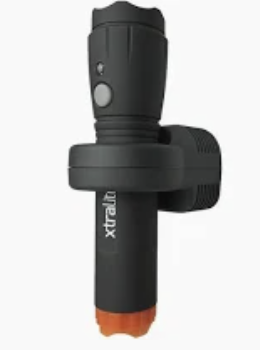
- Another option is to use plug in night lights with an integral battery back-up normally installed throughout the escape routes. [again, could be unplugged, switched off or mislaid though.]
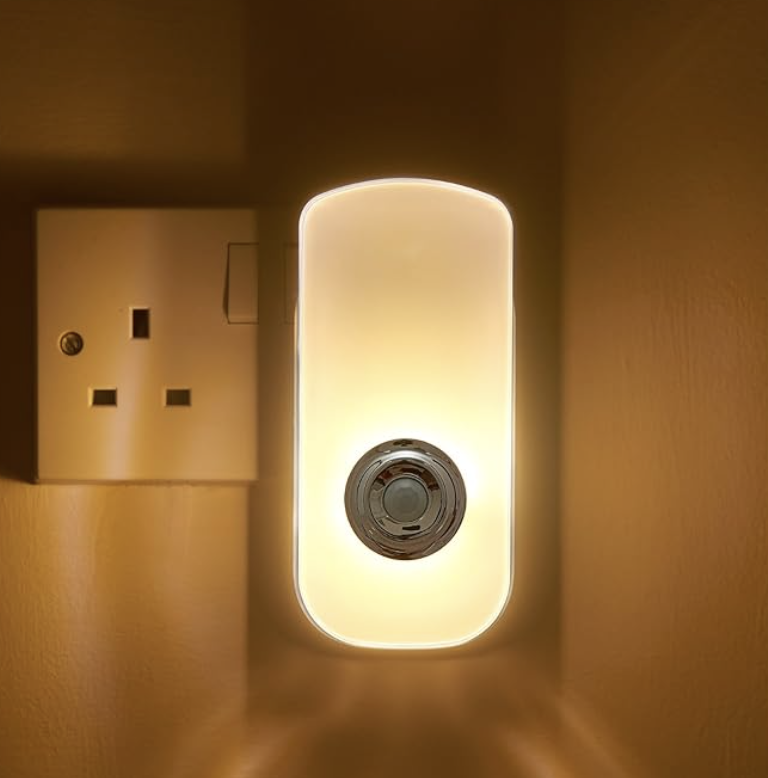
4. A more permanent reliable option and especially needed in larger propertiesor ones with more complicated escape routes would be to install permanent emergency lights within the escape routes, supplied from the house electrical system, each with their own 3-hour back-up battery and can include illuminated directional legends to aid the quickest way out.
These will require inspection, testing and recording/certification annually.
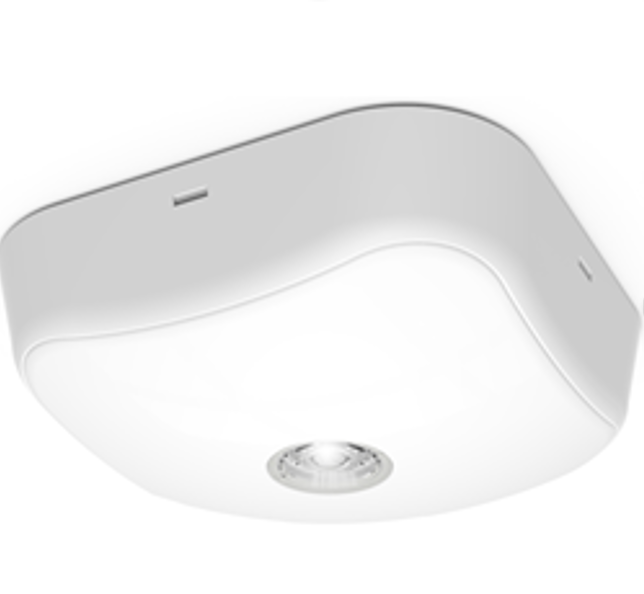
THIS IS SOMETHING WE ARE HAPPY TO DISCUSS WITH YOU, WE WILL DESIGN THE CORRECT SYSTEM, INSTALL IT, TEST IT AND CERTIFY IT.
FIRE DETECTION AND ALARM SYSTEM FOR HOLIDAY LETS:
Under the new changes that came in on the 1st October 2023, it is necessary to provide a suitable fire detection and alarm system in all holiday let properties to include smoke, heat & CO as a minimum.
A suitable system will be by use of interlinked smoke and heat alarms in all areas where a fire may start.
Smoke alarms are required in multiple rooms such as listed below [but not limited to as each property is individual].
Hallways, Landings, corridors, stairs, lounge/living rooms, dining room, other general habitable rooms, and bedrooms.
Areas such as voids and loft space detection is dependent on the specific property requirement.
A Heat detector is required in rooms such as the kitchen, laundry room and utility room.
A CO detector is required in any room where a fossil fuel burning appliance is present, such as gas/oil boilers, open fires, or wood burners.
Full detailed guidance can be found under BS5839 part 6.
The installed system will require inspection, testing and recording/certification annually.
AGAIN, THIS IS SOMETHING WE ARE HAPPY TO DISCUSS WITH YOU, WE WILL DESIGN THE CORRECT SYSTEM, INSTALL IT, TEST IT AND CERTIFY IT.
WE CAN CARRY OUT ALL THE ABOVE WORK FOR YOU AND IT MAKES SENSE TO COMBINE AS MUCH AS YOU CAN IN ONE VISIT TO KEEP THE COST DOWN.
If you want to find out more or book in a free no obligation quote, contact Mr. Electric on 01872553541/ 553898 or email [email protected] for more info.
